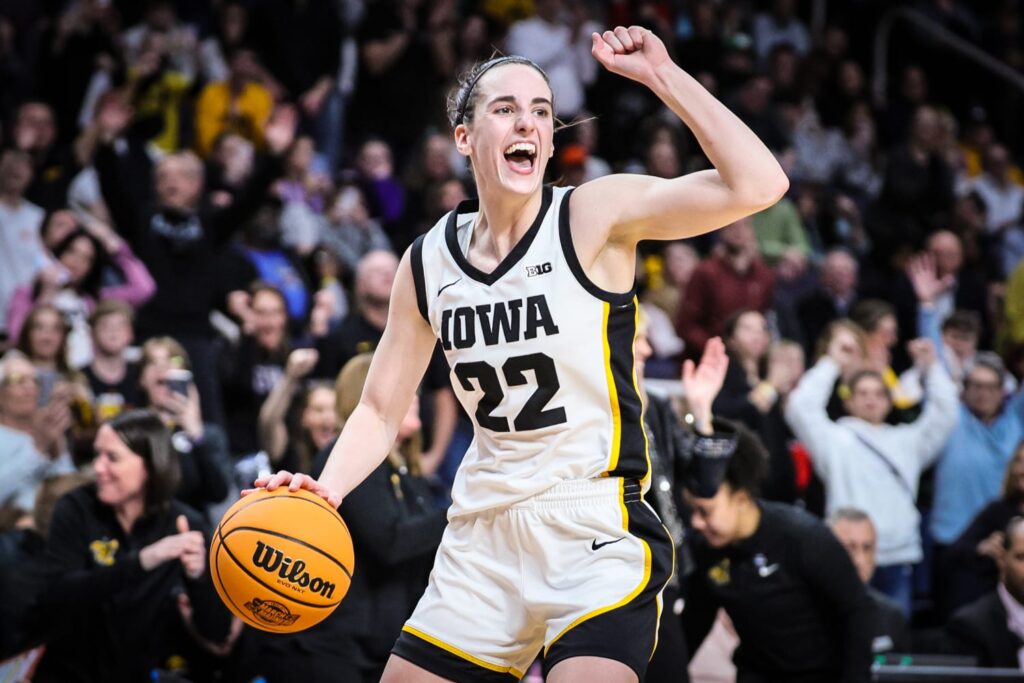College basketball stars such as Caitlin Clark and Angel Reese have captivated sports fans around the world with their skill and determination, but their rapid rise has meant that student-athletes can earn personal income. We also spotlight the NCAA's name, image and likeness policies that make this possible. brand.
Since a landmark 2021 Supreme Court ruling paved the way for athletes to monetize their brands and pursue “education-related interests,” the federal government has made no decisions about how it would work. It has done nothing to provide structure or guardrails.
About 30 states have passed their own name, image, and likeness (NIL) laws, but a series of court decisions have raised questions about what universities can and cannot do in the hiring process.
The resulting vacuum has been filled by “collectives,” third-party organizations set up by deep-pocketed donors and school supporters who can pool their funds to offer NIL contracts to athletes, and in some cases. has essentially triggered a bidding war.
Alabama football coach Nick Saban and others are worried about the ensuing chaos. While expressing his support for traditional NIL opportunities, he slammed this “play-for-play” model at a Congressional roundtable last month.
“I don't think that's the spirit of college athletics,” Saban said during a panel moderated by Texas Sen. Ted Cruz. “I don’t think it’s ever been what we want the spirit of college athletics to be.”
Since the Supreme Court's decision in NCAA v. Alston in 2021, many student-athletes have taken advantage of the opportunity to profit from their names, images and likenesses. Clark, an Iowa State player, has contracts with State Farm, Nike, Gatorade and more. But despite the intense spotlight on big names, the reality is that the roughly 500,000 athletes who compete under the NCAA and the NIL rights are making connections and making money. There are tens of thousands of athletes who stand to benefit.
For Bailey Ortega, a fifth-year volleyball player at Louisiana State University who transferred from Iowa this year, it's about building relationships, cultivating a brand and seeing where it takes her.
“It was a good opportunity for me to find another avenue outside of sports and utilize my passion,” Bailey recently told NBC News on campus after spring practice. She said one of the first things she created after the Supreme Court ruling was her own product line, and a portion of her proceeds were donated to the University of Iowa Children's Hospital.
Since then, Ortega has signed a deal with software company Huddle and led conversations about athlete empowerment at events such as ESPNW Campus Conversations.
but A patchwork of state laws and the absence of federal law has led to lawsuits challenging the NCAA's ability to police certain recruiting practices, further disrupting business dealings at the university level.
A federal judge recently dealt a major blow to efforts to investigate the NCAA and several schools after the attorneys general of Tennessee and Virginia sued the organization.
Darren is a sports lawyer who teaches at multiple universities and represents notable athletes at both the collegiate and professional levels, including college basketball stars Haley and Hannah Cavinder and the Golden State Warriors. “Everyone is finally taking this situation seriously,” Hytner said. Draymond Green.
“Coaches, athletic directors, conference commissioners are all panicking because they're afraid of the unknown,” Heitner said. “They don't know if this system is sustainable.”
But Hytner, who was present at the roundtable, said, “Whoever wants to pay the most money, raise the most money and sign the most players will have the best chance of winning.” He pushed back on Saban's claims. Hytner said the collectives offer “incentives” related to admission to certain universities and, in some cases, social media responsibilities and other deliverables, but not on-field performance.
These associations and NIL opportunities give athletes more power over the NCAA, conferences and universities, which is why some prominent industry figures are so furious, Hytner said. thinking.
“The driving instructors who have been in this industry for decades are absolutely crazy because they have figured out the secret sauce and built a formula that will stand the test of time,” Hytner said. . “And suddenly… everything changed.”
Lawmakers from both chambers and parties have introduced bills ranging from creating a partial “antitrust exemption” for the NCAA to revenue-sharing structures for paying players to special rules for top-performing programs. , no real movement. We're on Capitol Hill and the clock is ticking.
Universities like LSU are caught in the middle, trying to steer students in the right direction and make the most of opportunities.
In response to the Supreme Court's ruling, the school established its own NIL office, headed by Taylor Jacobs, a former athlete who has worked for years on NCAA compliance.
Jacobs said she's amazed at what athletes have been able to accomplish through NIL, from subsidizing her brother's education to establishing a foundation to support other female student-athletes.
“At the end of the day, our student-athletes are the ones who put LSU on the map and help build this LSU brand, and they are the ones who make the most of that brand,” Jacobs said. Told.


